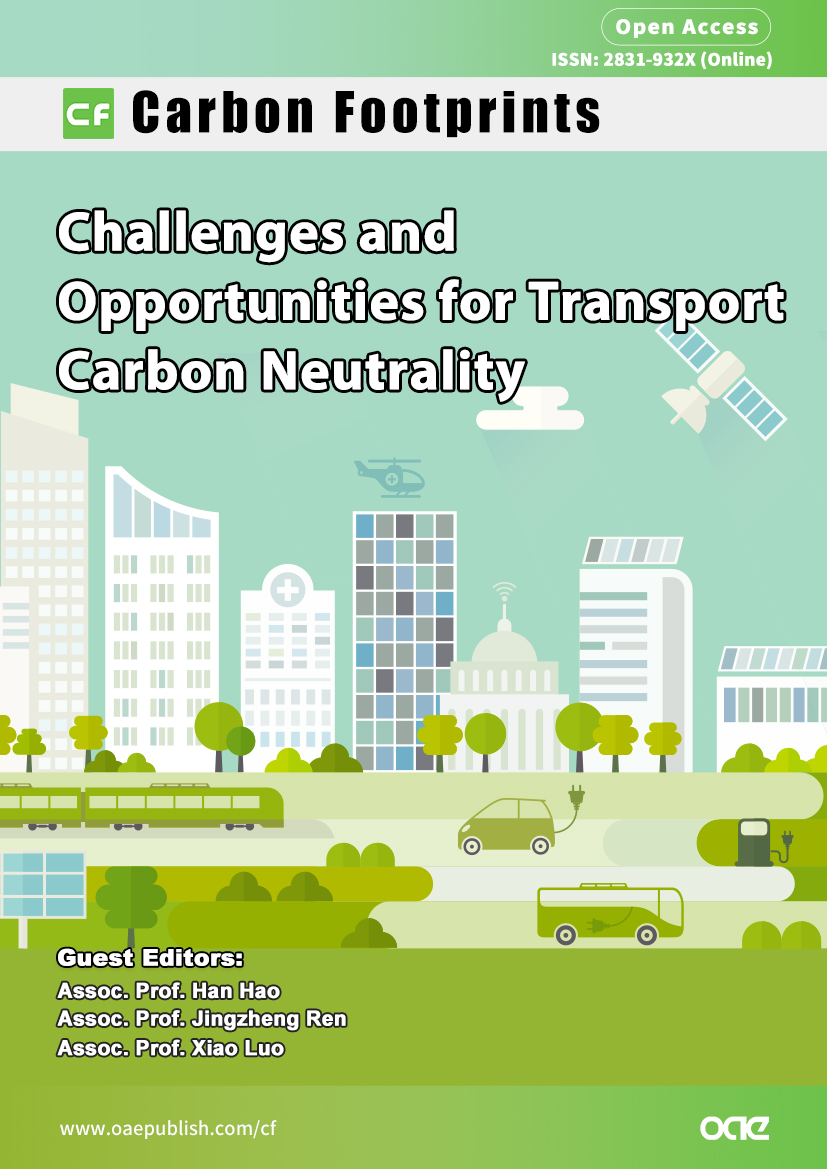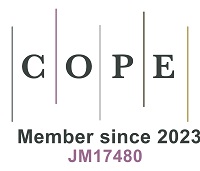
Topic: Challenges and Opportunities for Transport Carbon Neutrality
Guest Editors
Assoc. Prof. Han Hao
State Key Laboratory of Automotive Safety and Energy, Tsinghua University, Beijing, China.
Assoc. Prof. Jingzheng Ren
Department of Industrial and Systems Engineering, Hong Kong Polytechnic University, Hong Kong, China.
Special Topic Introduction
The transport sector contributes approximately one-quarter of global anthropogenic carbon emissions, with road transport accounting for roughly 75%, and aviation and shipping each contributing around 10%. Achieving carbon neutrality in the transport sector necessitates transport electrification, vehicle lightweighting, integration of intelligent systems, operational evolution, and the implementation of sustainable policies. Addressing these challenges requires multidisciplinary research spanning advanced materials, chemical engineering, environmental science, artificial intelligence, and public management. Effective strategies for zero-carbon transport predominantly revolve around the adoption of zero-carbon transport equipment (e.g., battery electric vehicles powered by clean electricity, fuel cell vehicles utilizing green hydrogen, internal combustion engine vehicles using sustainable fuel, and recycled materials obtained through advanced recycling technologies) and zero-carbon policy designs (e.g., vehicle-to-grid energy storage applications, the recycling of high carbon intensity materials, and the promotion of shared mobility and public transportation). However, given the diversity of technologies and the growing demand for transportation, achieving a balance between the development trajectory and the actual impact of zero-carbon transport poses a considerable challenge. Therefore, comprehensive, multi-perspective studies are imperative to assess and steer the process of zero carbonization within the transportation sector.
Accordingly, this Special Issue will focus on the transition towards zero-carbon transports, including but not limited to the following:
● Examination of Life Cycle Carbon Emissions of New Energy Vehicles;
● Development of Carbon Emission Control Indices for Low-, Nearly Zero-, and Zero-Carbon Emission Fleet Renovations within the Transport Sector;
● Proposal of Methodologies for Assessing Carbon Emissions Leveraging Transportation Information Modeling;
● Development of Approaches for Carbon Footprint Assessment in Transport Operations;
● Investigation of Carbon Emission Measurements across All Stages of the Lifecycle;
● Analysis of Policies, Technologies, and Evaluation Methods for Low-Carbon Transport Initiatives;
● Exploration of the Nexus between Green Transport Policies and Urban Development;
● Evaluation of the Significance of Electricity Emission Factors for Standardized Calculation of Transport Carbon Emissions;
● Optimization Strategies for New Energy Vehicles through the Utilization of Alternative Materials and Designs;
● Assessment of the Potential of Intelligent Systems in Advancing Green Transport Infrastructure;
● Exploring the Role of Autonomous Driving and Vehicle-Road Cooperative Driving Technology in Urban Traffic Management;
● Investigating the Interaction Between New Energy Vehicles and Smart Transportation Infrastructure.
Accordingly, this Special Issue will focus on the transition towards zero-carbon transports, including but not limited to the following:
● Examination of Life Cycle Carbon Emissions of New Energy Vehicles;
● Development of Carbon Emission Control Indices for Low-, Nearly Zero-, and Zero-Carbon Emission Fleet Renovations within the Transport Sector;
● Proposal of Methodologies for Assessing Carbon Emissions Leveraging Transportation Information Modeling;
● Development of Approaches for Carbon Footprint Assessment in Transport Operations;
● Investigation of Carbon Emission Measurements across All Stages of the Lifecycle;
● Analysis of Policies, Technologies, and Evaluation Methods for Low-Carbon Transport Initiatives;
● Exploration of the Nexus between Green Transport Policies and Urban Development;
● Evaluation of the Significance of Electricity Emission Factors for Standardized Calculation of Transport Carbon Emissions;
● Optimization Strategies for New Energy Vehicles through the Utilization of Alternative Materials and Designs;
● Assessment of the Potential of Intelligent Systems in Advancing Green Transport Infrastructure;
● Exploring the Role of Autonomous Driving and Vehicle-Road Cooperative Driving Technology in Urban Traffic Management;
● Investigating the Interaction Between New Energy Vehicles and Smart Transportation Infrastructure.
Submission Deadline
31 May 2025
Submission Information
For Author Instructions, please refer to https://www.oaepublish.com/cf/author_instructions
For Online Submission, please login at https://www.oaecenter.com/login?JournalId=cf&IssueId=cf2503201976
Submission Deadline: 31 May 2025
Contacts: Leah Deng, Assistant Editor, [email protected]; [email protected]









